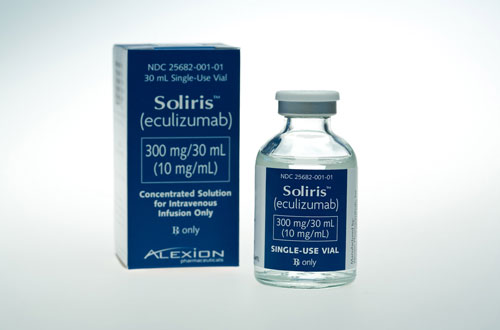
The NHS should fund Alexion’s Soliris to treat a very rare and life-threatening blood disorder, according to final draft guidance from NICE.
The atypical Haemolytic Uraemic Syndrome (aHUS) treatment is the first drug to go through a new evaluation process for high cost, highly specialised technologies for very rare diseases.
Soliris (eculizumab) has an annual price tag of around £340,000 per patient and positive final NICE guidance would cost the health service up to £58m in the first year – rising to £82m after five years.
At present levels this would be a significant part of NHS England’s budget for such drugs – for 2013/14 it set aside £544m for high specialised services and spent £156m on high cost drugs – and Soliris’ price has previously been a problem for NICE.
Now NICE has decided Soliris is a cost-effective use of NHS resources in England and Wales, but its final draft guidance came with a number of caveats.
These include coordinating its use through an expert centre and establishing a national protocol for starting and stopping Soliris for clinical reasons.
A life-threatening disease that affects around 200 people in England, aHUS causes inflammation of blood vessels and the formation of blood clots throughout the body.
People with aHUS are at constant risk of sudden and progressive damage to, and failure of vital organs, particularly the kidneys.
Alexion estimated Soliris produced 25.22 additional QALYs per patient compared with standard care. NICE said its review committee found “markedly lower” benefits, but added that “both analyses produced substantial QALY gains of a magnitude that is rarely seen for any new drug treatment”.
NICE chief executive Sir Andrew Dillon said: “The committee accepted that eculizumab is a step change in the management of aHUS and can be considered a significant innovation for a disease with a high unmet clinical need.
“The drug is, however, very expensive … [and it] should be funded only if important conditions are met. In the meantime NHS England and the company should consider what opportunities might exist to reduce the cost of eculizumab to the NHS.”
Final guidance on the use of eculizumab to treat aHUS is expected in January 2015 – in the meantime it will continue to be funded by NHS England through interim specialised commissioning arrangements.




